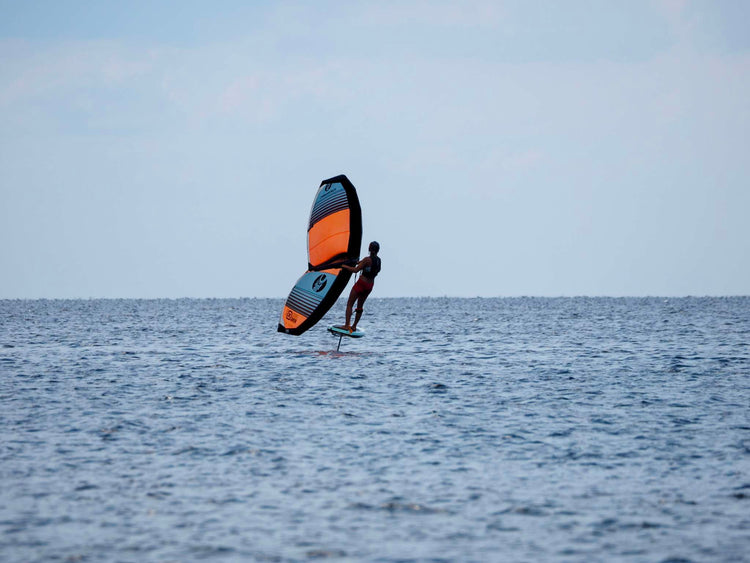
by Gabby C
1. Accessibility and Convenience
- Easier launching with no long lines requiring extensive setup and management
- Wings can be used in more diverse locations, like narrow beaches or areas with unpredictable winds
- Requires less technical knowledge and skill compared to kite foiling
- Easier to practice on land
2. Versatility in Wind Conditions
- Simply paddle out to the wind line, without worrying about wind shadows or offshore winds
- No hazardous launching and landing a kite on land in offshore winds and wind shadows
- More enjoyable in gusty conditions because the wing can be put in neutral to remain unaffected by strong gusts
3. Low Impact & Physical Benefits
- Provides a better workout than kite foiling
- Physical resistance from holding the wing in your hands and stamina to keep it up benefits both muscular and cardiovascular health
- Learning to wing requires less coordination than kite foiling
4. Learning Curve
- Wing control mechanics are less complex compared to a kite
- Easier for those with sailing or windsurfing experience
- Kite foiling requires greater commitment and coordination to master
- Lessons aren't required to start wing foiling, but they'll make the learning process smoother
5. Safety & Ease of Use
- Zero risks associated with long kite lines and flying a kite
- No need for assistance to launch
- Easier self-rescue, simply paddle back to shore
- Crashes tend to be less powerful due to slower riding speeds
6. Freedom of Movement - Wave Riding
- 360 degrees of freedom
- Greater freedom of movement, you are not attached to the wing form a fixed point like a kite
- Ability to switch hands, and hold it in one hand
- The wing can be fully neutralized for a more fluid, surf-like wave riding experience
by Gabby C
Use left/right arrows to navigate the slideshow or swipe left/right if using a mobile device

